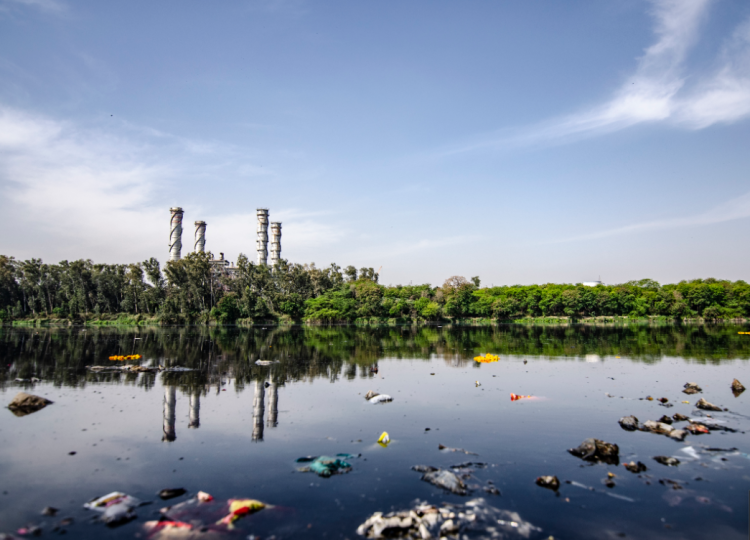The Camp Lejeune Justice Act of 2022 represents a crucial step towards addressing the devastating consequences of water contamination at the Lejeune military base in North Carolina. This landmark legislation seeks to provide relief and support to the victims. These include military personnel, their families, and civilian employees who have suffered the health impacts of exposure to toxic chemicals in the water supply.
This article examines the key provisions of the Act, its historical significance, and its potential impact on the lives of those affected by the Lejeune Base contamination.
Table of Contents
Understanding the Camp Lejeune Justice Act of 2022
The passing of this act represents a crucial legislative endeavor aimed at tackling the prolonged health emergency resulting from water pollution at the Lejeune military base camp. The act aims to provide crucial support and relief to those who have been adversely affected by the ecological disaster at the Lejeune military base camp.
The victims, including military personnel, their families, and civilian employees, have been exposed to toxic chemicals in the base’s water supply for several decades, leading to severe harm to their health and well-being.
Moreover, the Camp Lejeune Justice Act of 2022 recognizes the urgent need to assist those who have suffered from a wide range of health conditions. TorHoerman Law LLC states these are majorly linked to contamination, including cancers, birth defects, and other serious illnesses. It establishes a framework for providing medical care, disability compensation, and other forms of assistance to eligible individuals.
These include veterans, their family members, and employees stationed at the Lejeune base during water contamination. TorHoerman Law LLC also states that the statute forbids the US government from asserting some forms of sovereign immunity in response to a Lejeune base polluted water lawsuit.
Therefore, Lejeune base water pollution victims can submit an administrative claim outlining their damages and a suggested compensation with the aid of legal representation.
Furthermore, the Act acknowledges the failures in managing and overseeing the water supply at the camp and aims to hold those responsible accountable.
Impact on Military Families
According to the US Department of Veterans Affairs, the Presidential Proclamation enacted the Honoring Our PACT Act of 2022 on August 10, 2022. In addition, the Camp Lejeune Justice Act of 2022 (CLJA), Section 804 in the PACT Act, permits persons exposed to tainted water at the Lejeune Marine Corps base to bring new cases.
Thus, the Act aims to provide much-needed support and relief to these families who have suffered the consequences of the toxic exposure at Lejeune Marine Corps base camp contamination.
It has profoundly impacted military families and families residing at Lejeune Marine Corps base camp during the period of water contamination, which has faced serious health challenges. These include increased rates of cancers, reproductive issues, and other illnesses.
Many families have experienced the loss of loved ones or continue to struggle with chronic health conditions that have had long-lasting physical, emotional, and financial impacts. Therefore, the Act recognizes the sacrifices made by military families and seeks to provide them with medical care, disability compensation, and other forms of assistance.
Implications for Environmental Health
The water pollution at the Lejeune Marine Corps base has highlighted the devastating consequences of exposure to toxic chemicals in drinking water.
According to the VA and the office of US Senator Thom Tillis (R-NC), the drinking water was discovered to be polluted with industrial solvents. These include trichloroethylene (TCE), perchloroethylene (PCE), benzene, and other dangerous compounds, including vinyl chloride.
At Lejeune Marine Corps base, these pollutants were found in two on-base water wells at concentrations that ranged from 240 to 3,400 times above the legal limit.
Thus, the Act represents an important step toward addressing environmental disasters and protecting public health. In addition, the Act acknowledges the need for transparency and accountability in environmental management, particularly in the context of military installations.
Furthermore, the Camp Lejeune Justice Act sets a precedent for addressing environmental injustice and ensuring those responsible for environmental contamination are held accountable.
Challenges and Limitations
There has been one challenge: the complex nature of proving the causation between the water pollution at the camp and specific health conditions. Establishing a direct link between exposure to toxic chemicals in the water and individual health outcomes can be challenging.
It is due to latency periods, multiple exposure sources, and pre-existing health conditions. Therefore, it may result in difficulties in determining eligibility for compensation and medical care under the Act.
Another limitation is the potential for inadequate funding and resources to implement the provisions of the Act fully. Providing comprehensive medical care and disability compensation to eligible individuals and families may require substantial financial resources, and the availability of such resources may impact the extent to which the Act can fully meet the needs of the affected individuals.
Ongoing Efforts to Ensure Justice for Affected Families
The Act marks a significant milestone in addressing the contamination crisis at the camp. But the ongoing efforts are crucial to ensure justice for the affected families. Advocacy groups, environmental organizations, and concerned citizens continue to push for transparency, accountability, and comprehensive support for those impacted by the contamination.
Raising awareness and providing education about the health risks associated with exposure to toxic chemicals in drinking water is a key aspect. It includes informing affected families about the provisions of the Act and their rights to seek compensation and medical care under the Act. Continued outreach and education can empower affected families to navigate the administrative processes and requirements and ensure they know their rights and options for seeking justice.
Another important ongoing effort is monitoring the implementation of it and holding accountable the Department of Defense for fulfilling its obligations under the Act. Advocacy groups and organizations continue to monitor the progress of the Act’s implementation closely.
These include the provision of adequate funding and resources to meet the needs of affected individuals and families. In addition, efforts to address challenges and limitations in the Act, such as ensuring timely and fair compensation, can also be ongoing focus areas.
The Camp Lejeune Justice Act of 2022 Is a Crucial Step in Resolving the Water Pollution Situation
The Camp Lejeune Justice Act of 2022 represents a significant step towards addressing the water contamination crisis at the Lejeune Marine Corps base and providing relief to the affected families. According to Consumer Notice, anyone who spent at least 30 days residing, working, or in any other way exposed to the water at the camp between August 1, 1953, and December 31, 1987, is qualified under the new statute.
Thus, by acknowledging the health impacts of toxic chemicals in drinking water and establishing provisions for compensation and medical care, the Act aims to make things right for the victims. Dedication and advocacy can contribute to a just and equitable resolution for the affected families. In addition, these can catalyze positive changes in environmental policy and regulation.








